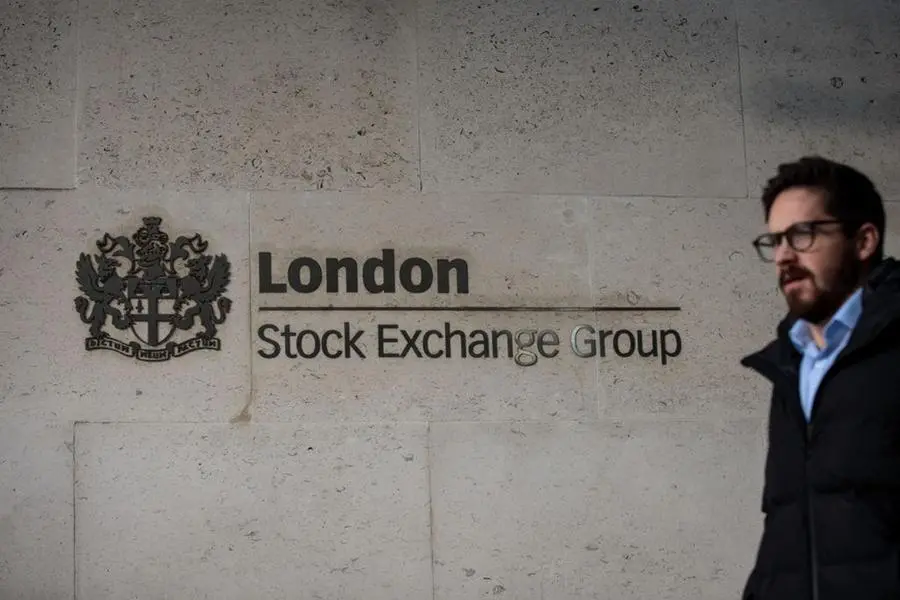PHOTO
London's FTSE 100 ended lower on Friday, weighed down by weakness in resource-linked shares, and recorded its third straight week of fall on worries about sluggish economic growth.
After rising as much as 1.2%, the FTSE 100 index erased early gains to end 0.4% lower, with oil majors Shell and BP and miners weighing the most on the index.
However, the domestically focused mid-cap FTSE 250 index advanced 1.1%, powered by a 5.0% surge in shares of Future after the company reaffirmed it was on track to achieve full-year 2022 guidance.
Both the indexes slumped more than 3% on Thursday after a cautious rate hike by Bank of England spurred predictions of bigger increases in next few meetings, as it sees inflation topping 11% and warned that the British economy would shrink in the April-June quarter.
"The more aggressive line by central banks adds to headwinds for both economic growth and equities," Mark Haefele, chief investment officer at UBS Global Wealth Management said in a note.
"Against this backdrop, we now see less upside for stocks this year, with slowing economic growth weighing on profit growth and higher bond yields depressing valuations."
For the week, the FTSE 100 ended down 4.1% and the FTSE 250 shed 3.7% as investors grew wary that a coordinated monetary policy tightening by global central banks could stoke a global economic slowdown.
"Rising inflation, interest rates and a rising chance of a recession have all served to turn stomachs in equity-land. Investor confidence can't have been completely shattered, however, judging by the fact some people were happy to go shopping for bargains after the recent sell-off," Russ Mould, investment director at AJ Bell said."
Among other stock moves, Tesco said it was seeing early indications of changing customer behaviour due to surging inflationary pressures that had made the market "incredibly challenging". Shares recouped early losses to end 0.8% higher.
(Reporting by Devik Jain and Amal S in Bengaluru; Editing by Shailesh Kuber and Alison Williams)




















